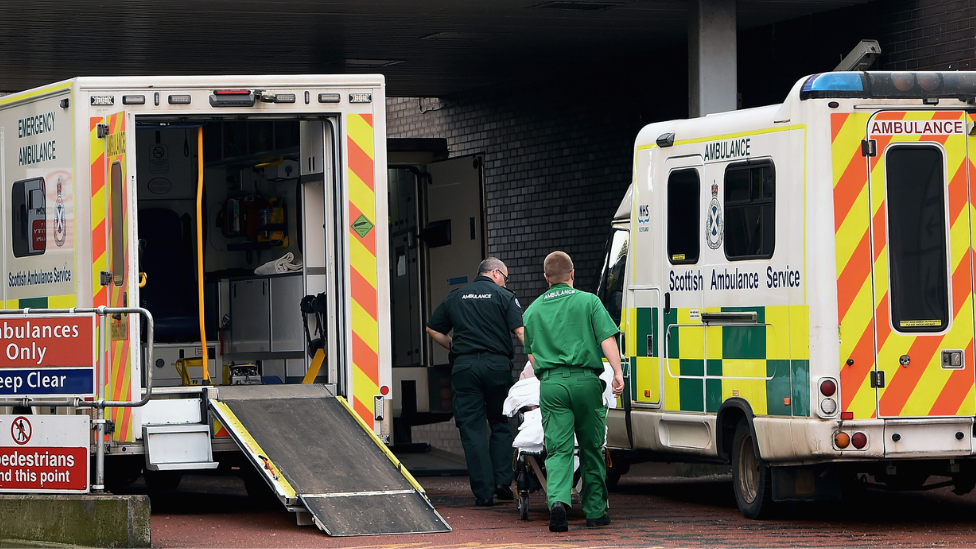The paramedic who wakes up wondering: 'Will I make it home tonight?'
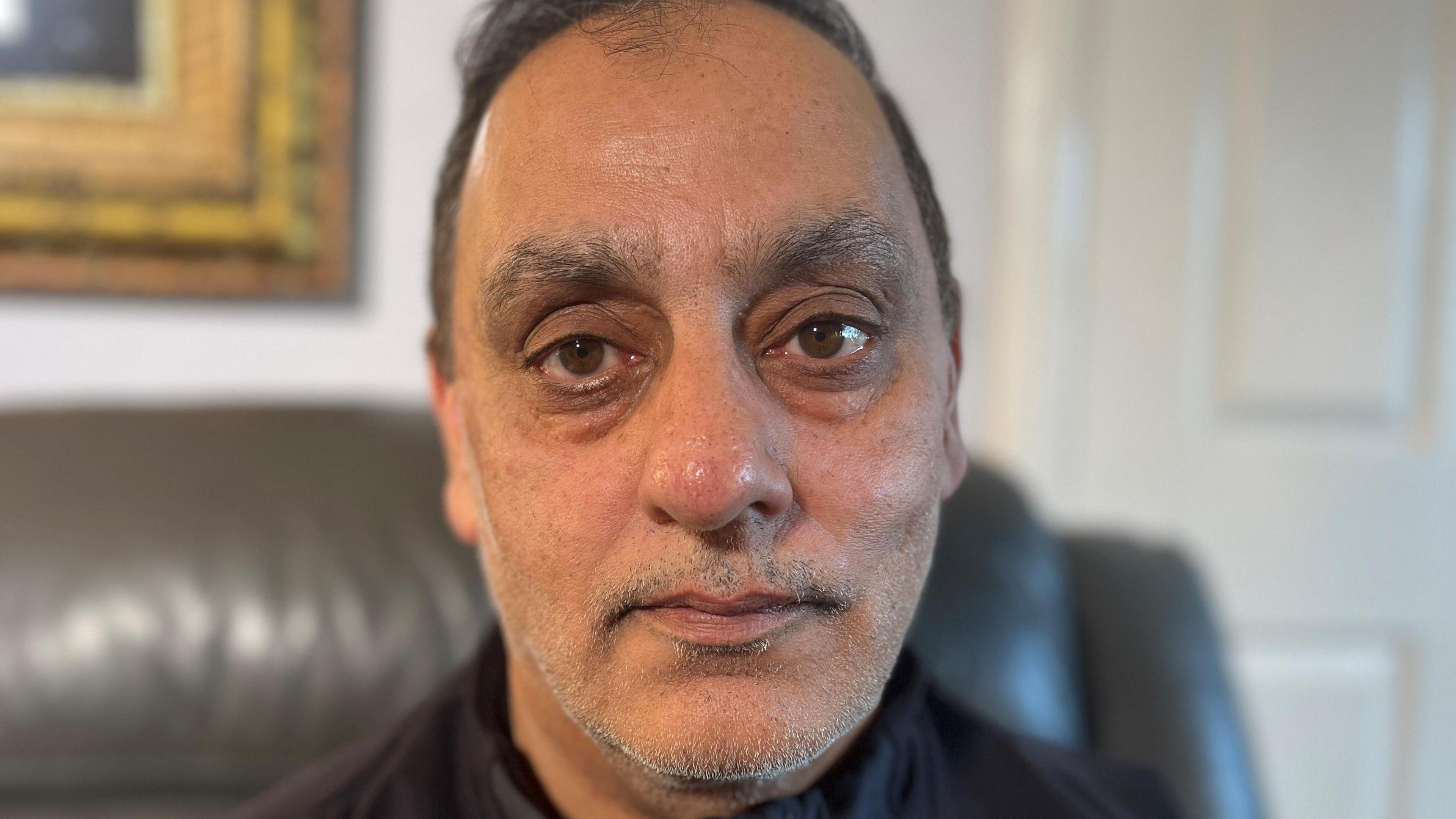
Araf Saddiq has been a paramedic for 28 years
- Published
Araf Saddiq has helped save hundreds of lives during his career, but he wakes up on a work day wondering: "Will I make it home tonight?"
The paramedic has been assaulted five times and verbally abused on countless occasions while treating and transferring patients.
In 2010 he was attacked by a man in Hairmyres Hospital A&E in East Kilbride and was off work for four months.
Mr Saddiq, who later took a two-year career break, said the incident left him with severe mental health trauma and PTSD.
He told BBC Scotland News: "You don't expect the person you are trying to help to turn around, suddenly, and just jump on you and start assaulting you."
The paramedic recalled his ordeal as new research found ambulance staff are frequently subjected to violence when responding to alcohol-related callouts.
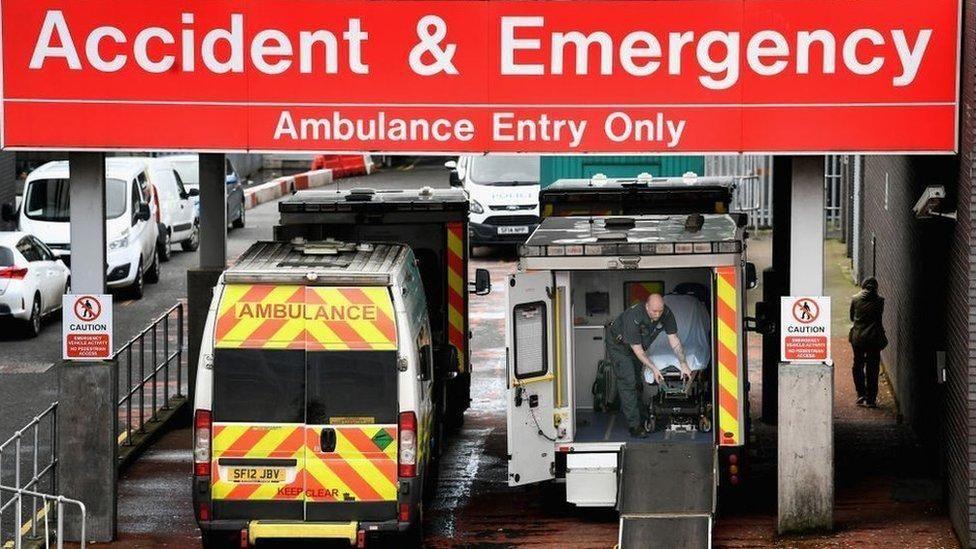
Ambulance staff have spoken of their concern over alcohol-related incidents
Stirling University academics interviewed 31 paramedics, technicians and senior staff at the Scottish Ambulance Service (SAS).
They heard testimony of unpredictable behaviour from intoxicated patients, with staff also regularly experiencing violence and harassment from bystanders.
One contributor said they had been bitten and chased with knives during the course of their duty.
Another told how they dread certain football fixtures and the fall-out from office parties over the festive season.
Workers also shared experiences of aggression and sexual harassment at work.
Mr Saddiq told BBC Scotland News the most recent physical assault occurred earlier this year when a woman struck him on the eye with a shoe.
But of all his frontline experiences, one night 15 years ago will never leave him.
'Sustained, vicious attack'
The paramedic had just arrived at Hairmyres with a patient who had been drinking.
The man did not engage with him during the ambulance journey but, shortly after being put in a wheelchair, he snapped.
Mr Saddiq, who is based in Douglas, South Lanarkshire, said: "As soon as I got him in, he turned round and started swearing at me. Racial profanities, all sorts of profanities."
The patient then stood up, punched him to the ground and proceeded to kick him.
The paramedic added: "It was quite a sustained, vicious attack.
"It took quite a number of doctors, nurses and my own colleague - who injured himself as well - to get him off me."
Mr Saddiq suffered a dislocated shoulder, broken ribs and an injured knee.
He added: "It was totally unexpected, out of the blue, and it knocked me for six."
Mr Saddiq told BBC Radio's Good Morning Scotland programme: "Following my assault I suffered severe mental health issues, I was diagnosed with PTSD, I had stress, anxiety, sleep disturbances, constant flashbacks for many years."
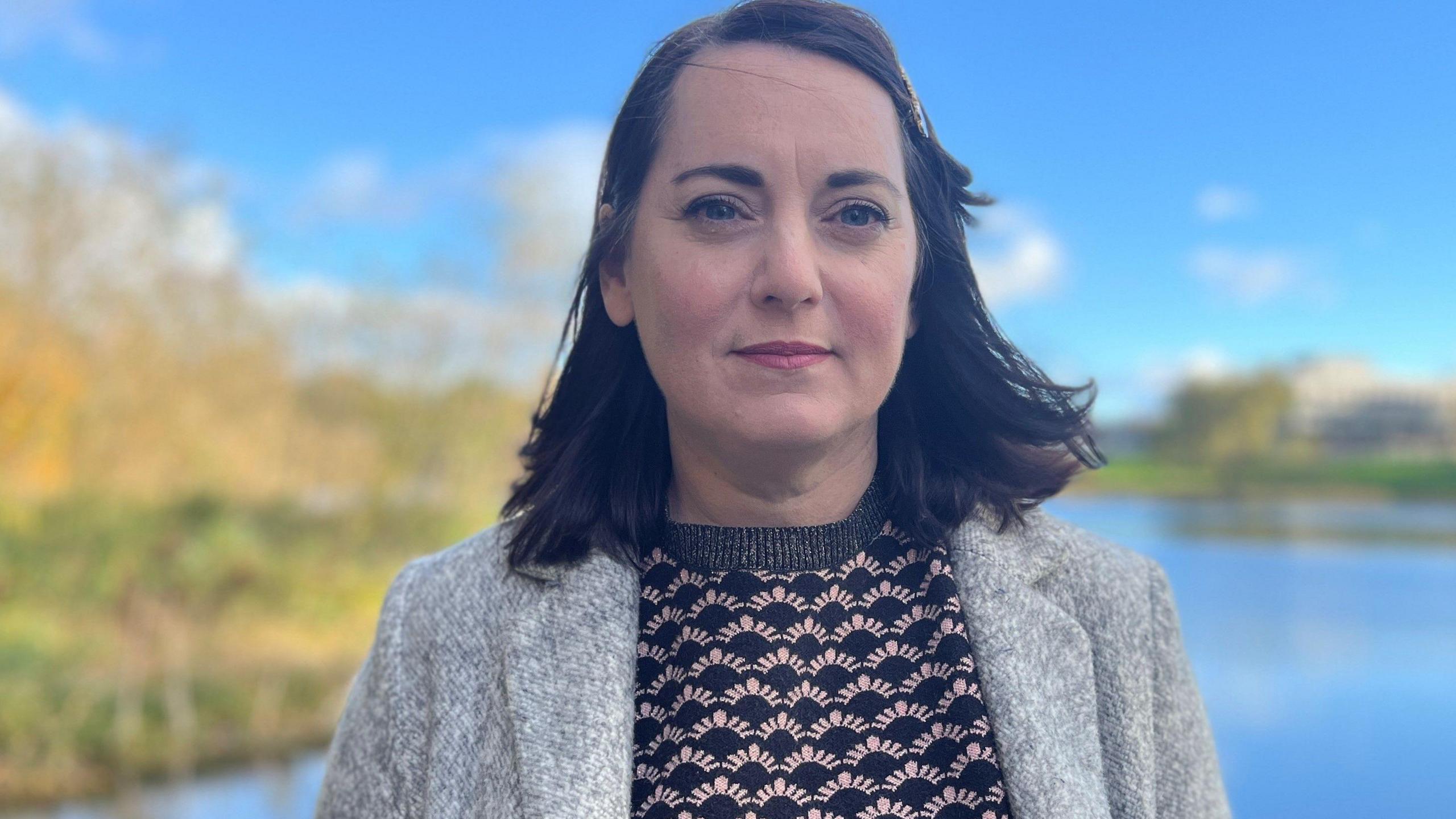
Prof Niamh Fitzgerald was the report's principal investigator
Mr Saddiq said the attack also had a ripple effect on his family and friends.
He said: "People just don't realise how much of a devastating impact it leaves with you for the rest of your life."
The paramedic, who became a Unison rep after the support he received from the union, said assaults affected the ability of staff to do their job effectively.
He said: "Your confidence goes, your self esteem goes, you feel worthless, you feel empty, you are fatigued.
"Waking up before you are going on shift, you shouldn't be feeling apprehension, you shouldn't be feeling anxious that you don't know what the day holds.
"Will I make it home tonight?"
Mr Saddiq said he knew colleagues who had left the service following an assault and warned the problem was rising "year on year".
He identified staff shortages and hospital waiting times as key factors in causing "increased frustration" for patients and families.
This can be even more worrying when alcohol is thrown into the mix.
Mr Saddiq added: "It can provide a perfect storm."
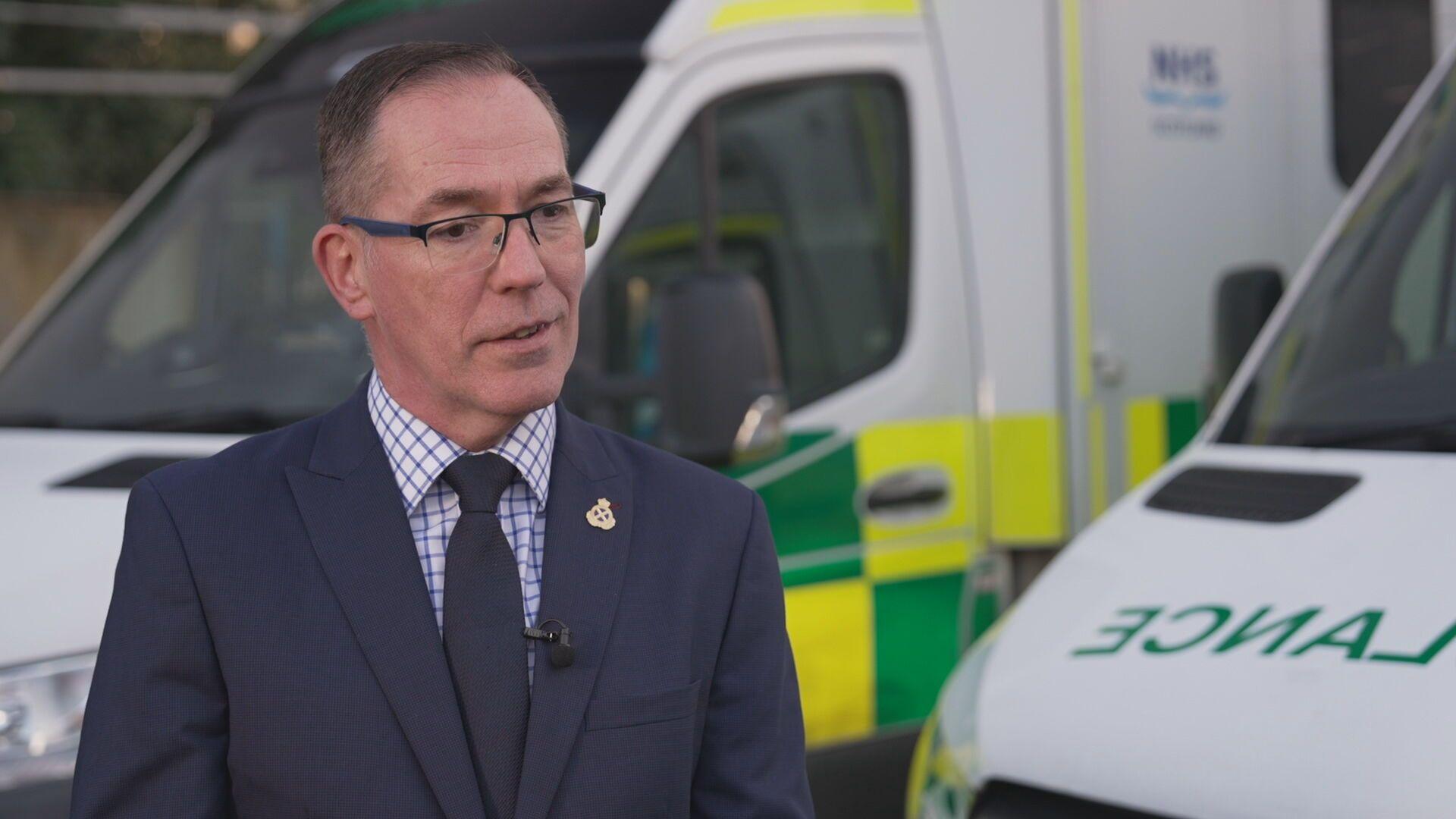
Scottish Ambulance Service chief executive Michael Dickson said crews needed more support
SAS chief executive Michael Dickson welcomed the research but said he was not surprised by its findings.
He said: "We have regular reports from crews experiencing violence and aggression from patients when they are only there to help them."
Mr Dickson added the study should be used to inform licensing decisions and better support crews.
The report highlighted the need for improved support for patients with chronic issues alcohol issues.
But the authors also called for tighter regulations, such as limiting the sale of alcohol after midnight and the introduction of marketing restrictions.
In May 2018 the Scottish government introduced the minimum unit price (MUP) and it was last year raised to 65p per unit of alcohol.
Previous Stirling University research found one in six ambulance call-outs in Scotland were alcohol-related.
Prof Niamh Fitzgerald, the report's principal investigator, told BBC Scotland News: "There is a sense of anxiety around the calls, in pubs and bars and nightclubs in particular, in that you just don't know what you are going to be facing.
"It is quite an uncertain environment and it is challenging not just because of the patient's needs but also the people round about who are also potentially drunk."
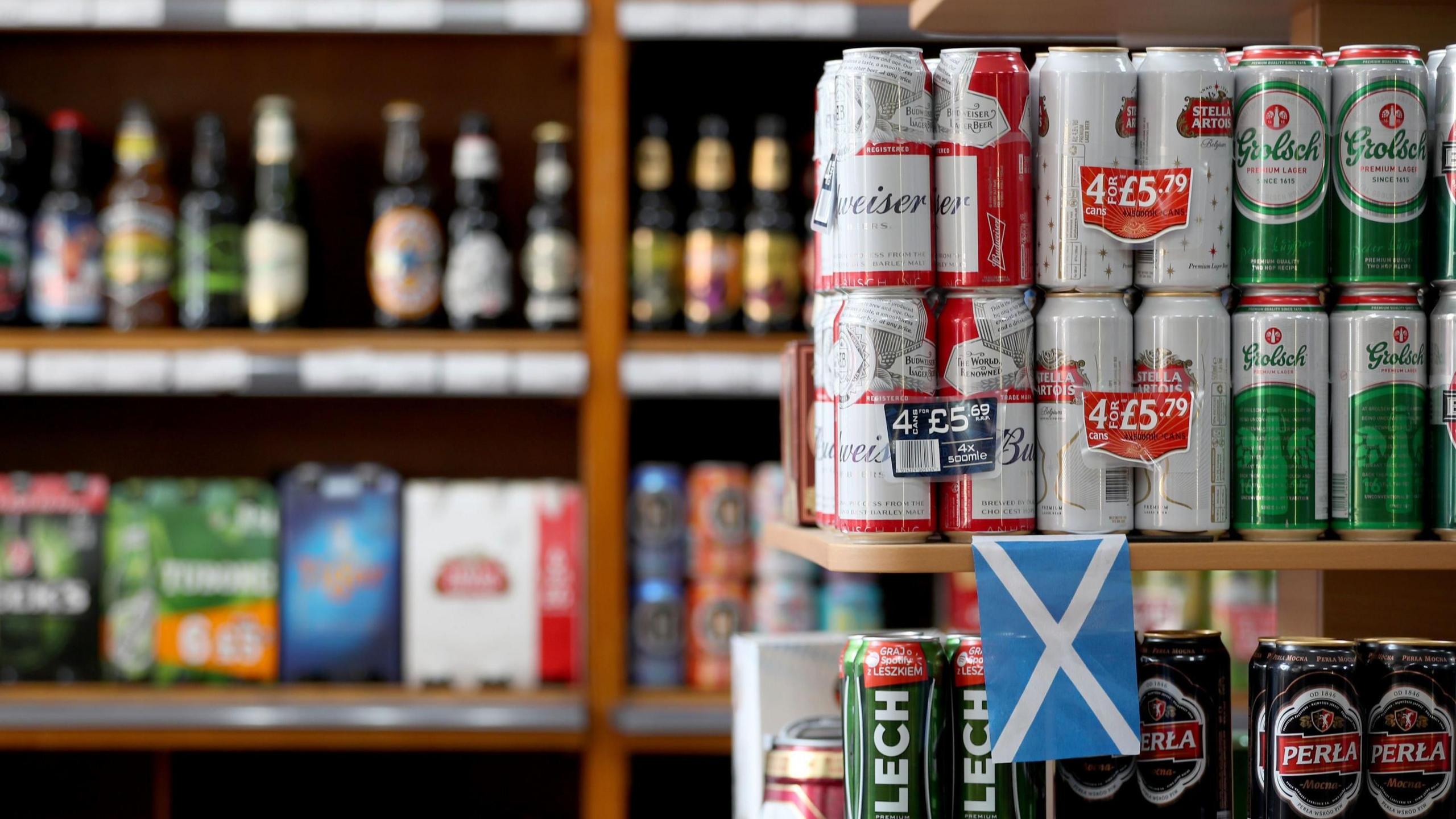
Minimum Unit Pricing was introduced for alcohol in Scotland in 2018
The Scottish government said it was making progress in tackling alcohol harms, with recent statistics showing the number of alcohol-specific deaths dropping by 7%.
A spokesperson said: "We are determined to build on this progress, providing record levels of funding for alcohol programmes and widening access to treatment, including residential rehabilitation.
"Research commended by experts has estimated that our Minimum Unit Pricing policy has saved hundreds of lives and is likely to have averted hundreds of alcohol-attributable hospital admissions."
They added that alcohol licensing decisions - including setting appropriate hours for selling alcohol in pubs and nightclubs - was the responsibility of independent local authority licensing boards.
Under the Emergency Workers Act, external courts can impose of up to 12 months imprisonment, a £10,000 fine, or both for serious attacks on ambulance staff.
The spokesperson said: "Any kind of threat or assault on our ambulance staff is completely unacceptable.
"No one should be the victim of abuse or violence while at work."
- Published4 December 2024
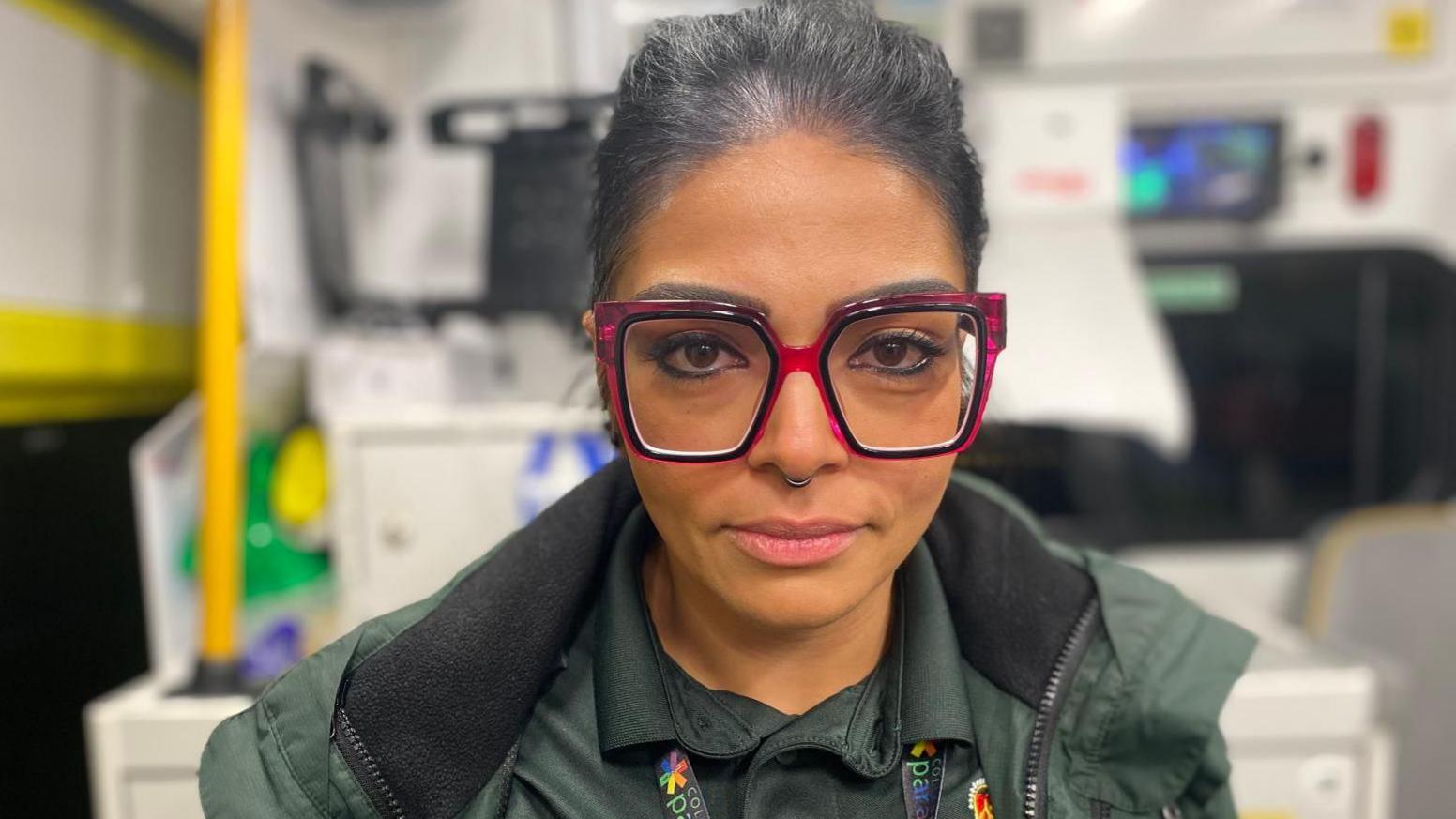
- Published4 June 2023
